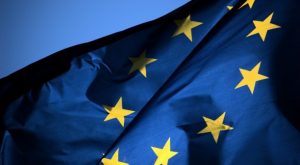Existential dilemma: If the European Union cannot do trade, what can it do?
 After the kerfuffle over the European Union’s trade deal with Canada, Charlemagne asks a grand and important question: If the EU cannot do trade, what can it do?
After the kerfuffle over the European Union’s trade deal with Canada, Charlemagne asks a grand and important question: If the EU cannot do trade, what can it do?
Exactly.
The EU is the world’s biggest trading bloc. In the early days, that was its reason to exist. The 1957 Treaty of Rome (or, to be more accurate, the Treaty establishing the European Economic Community) spoke of trade-related matters such as lower customs duties, a customs union, a single market for goods, services and capital across member states.
Then, matters got all political (the Union became a more political venture) and the EU’s raison d’ etre is coming into question. Charlemagne rightly describes the stop-start nature of the final moments of the Comprehensive Economic and Trade Agreement (CETA) with Canada as a “fiasco”. Seven years in the making and still put in doubt by “last-minute stonewalling by the Socialist-led parliament of Wallonia, the French-speaking bit of Belgium”. The result was that Canadian prime minister Justin Trudeau couldn’t sign the deal, as scheduled and had to do it on Sunday. The original event was meant to be one of pomp and circumstance in Brussels, Mr Trudeau and European Council president Donald Trump setting the seal on a triumphant trading partnership about which no one had a bad word to say.
That didn’t go quite to plan, thanks to Wallonia.
How and why is this happening?
Charlemagne overs a pretty decent incident-specific explanation for Wallonia’s recalcitrant Socialists, “out of national office for the first time in decades…and keen for attention.” There’s also reference to CETA’s status as a “next-generation” trade deal, with special courts for investors and complex provisions on the mutual recognition of standards. The EU should have foreseen, he grumbles, that it “would attract next-generation opposition.”
But this is about more than CETA’s comparative new-fangledness or Wallonian Socialist regressiveness.
Something else is afoot and routine EU responsibilities – to scout out and do trade deals – are getting affected.
The EU, says Charlemagne, risks sliding into a “vetocracy”, which is to say an entity that is in hock to national and regional politicians and political forces. It is being stymied by the very people it is supposed to benefit.
From 1957, the EU has done trade deals with more than 50 countries and it continues beavering away at others. It’s what it does and what it’s meant to do.
As Mr Tusk said when CETA was imperiled, failing with it would mean the EU could never strike a trade deal again.
In essence, he was asking the same question as Charlemagne: If the EU cannot do trade, what can it do?
And then, the further question: If it can’t do trade why have a European Union at all?

